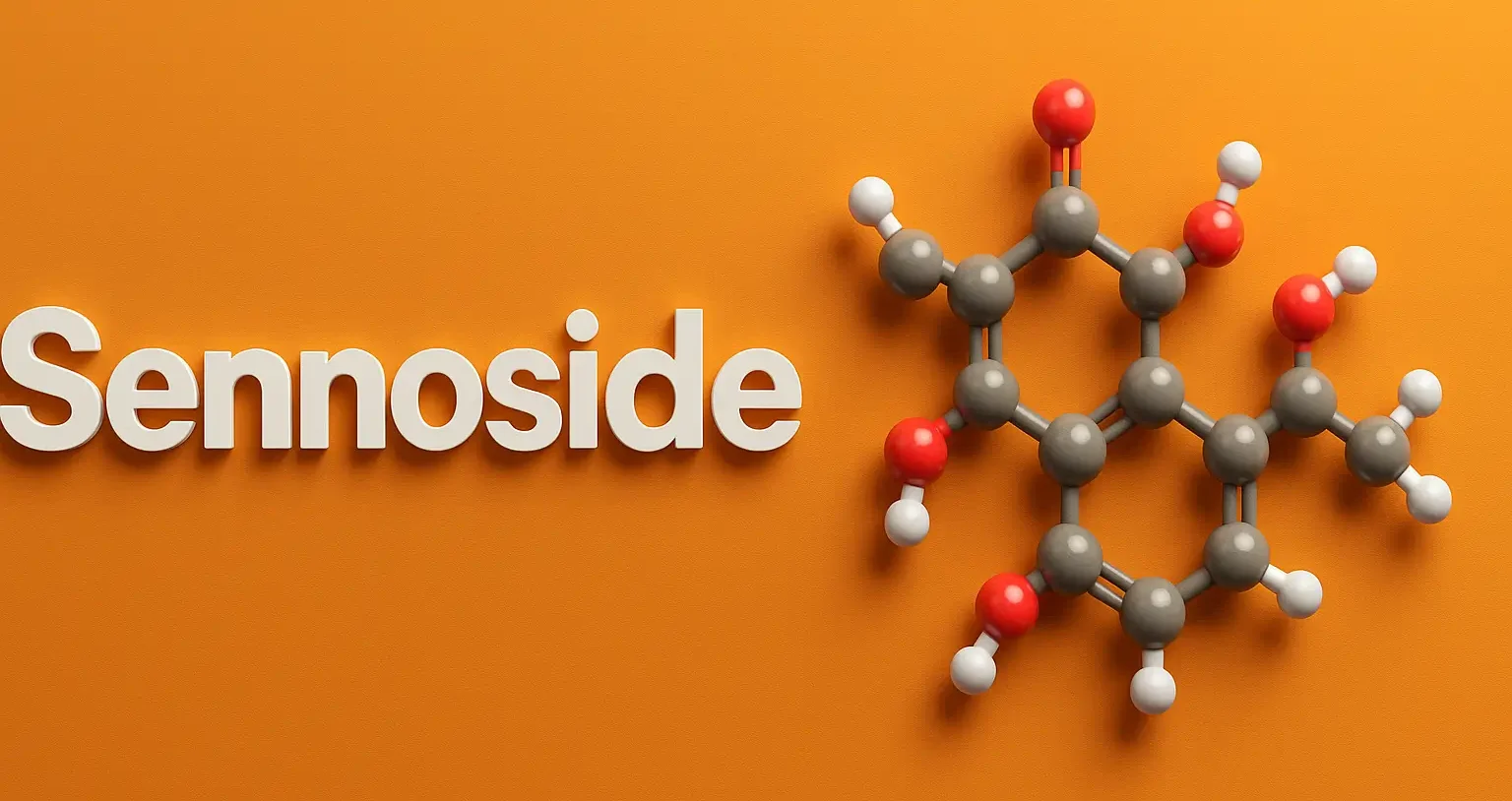Industrial Production of Sennoside
Source:
- Sennosides are anthraquinone glycosides extracted mainly from plants of the genus Senna, such as Senna alexandrina and Senna obtusifolia.
Extraction Process of Sennoside:
- Harvesting: Leaves and pods are harvested and dried.
- Extraction: Typically involves aqueous or alcoholic extraction to solubilize sennosides.
- Isolation: Techniques like liquid-liquid extraction and chromatography (e.g., silica gel chromatography) are used to isolate sennosides A and B.
- Purification: Crystallization or further chromatographic steps ensure high purity.
Alternative Production:
- Biotechnological Methods: Research into microbial synthesis is ongoing but not yet commercially viable.
Estimation
Analytical Techniques:
- HPLC: The standard method for quantifying sennosides due to its accuracy and sensitivity.
- UV-Visible Spectroscopy: Utilized for detection based on characteristic absorbance.
- Mass Spectrometry (MS): Provides precise molecular identification.
- Thin-Layer Chromatography (TLC): Used for qualitative analysis and purity checks.
Advertisements
Utilization
Pharmacological Applications:
- Laxatives: Sennosides are potent stimulant laxatives used to treat constipation by inducing colonic peristalsis.
- Diagnostic Tool: Utilized in medical diagnostics to assess colonic function.
Other Uses:
- Traditional Medicine: Employed in various traditional medicinal systems for digestive health.
- Research: Used in studies related to intestinal motility and colon health.


